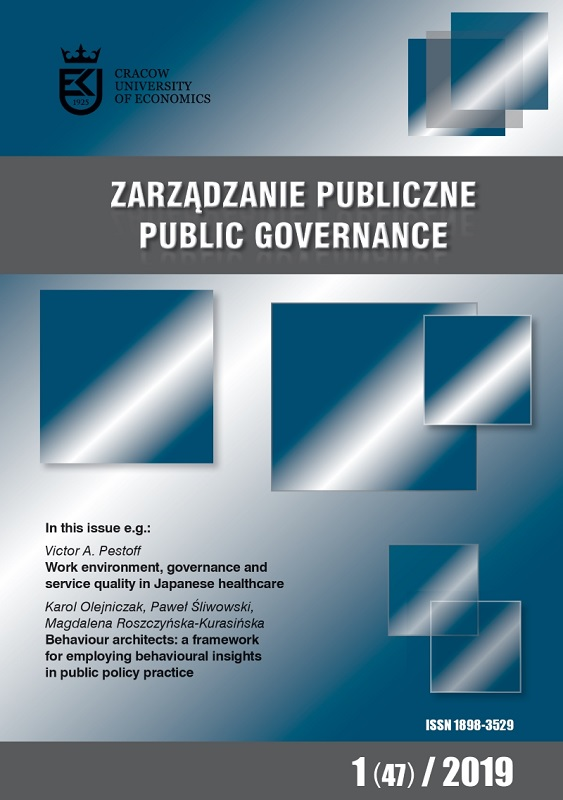The emergence of unintended fit and the theory of gradual institutional change: a case study of Polish employment regulations and post-crisis public policies
The emergence of unintended fit and the theory of gradual institutional change: a case study of Polish employment regulations and post-crisis public policies
Author(s): Karol MuszyńskiSubject(s): Politics, Economy, Sociology
Published by: Uniwersytet Ekonomiczny w Krakowie we współpracy z Wydawnictwem Naukowym Scholar
Keywords: public policy; institutional change; unintended fit; complementarity; historical institutionalism; drift; conversion
Summary/Abstract: Objectives: This paper aims to theorise that unintended fit may emerge not only when institutions are creatively adaptedby actors within the boundaries of formal rules, but also when formal rules are violated or circumvented.Research design & methods: To that end, this paper links unintended fit more closely with the theory of gradualinstitutional change coming from historical institutionalism. Theoretical developments are illustrated by a case studyon Polish employment regulations and post-crisis public policies.Findings: This paper finds that unintended fit may emerge in two situations: when rules are creatively adapted by actorswho use them (“conversion-type” unintended fit) or when they are both adapted and circumvented or violated (“driftconversion-type” unintended fit). The requirements for the formation of both types of unintended fit are discussed.Implications/ Recommendations: This paper suggests that violations and circumventions should be treated as methodsof engaging institutions and that the concept of ambiguity in historical institutionalism should be revised in respect to drift.Contribution / Value Added: This approach opens new possibilities for analysing the formation of institutionalcomplementarities.Article Classification: Research article.
Journal: Zarządzanie Publiczne
- Issue Year: 2019
- Issue No: 47
- Page Range: 33-47
- Page Count: 15
- Language: English

